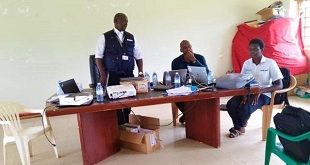
Kampala, Uganda | THE INDEPENDENT | One in five Ugandans aged 60 and above suffers from Alzheimer’s disease, a new study by researchers at Makerere University’s Department of Psychiatry has revealed.
Alzheimer’s disease is a degenerative condition that causes the brain to shrink and brain cells to die, slowly destroying memory and thinking skills, and eventually, the ability to carry out activities of daily life. It is the commonest form of dementia.
The study, ‘Diagnosing Alzheimer’s Disease as a Platform for improving training in Geriatrics in Uganda’ aimed to establish disease prevalence and evaluate research instruments that can lead to better and more accurate diagnoses of Alzheimer’s disease in communities.
To ascertain the disease’s prevalence, the research team, led by Noeline Nakasujja, a Professor of Psychiatry at Makerere University studied a thousand participants of which 500 were older persons aged 60 years and above in Nansana and Busukuma Town Councils.
Nakasujja says the estimated prevalence was found to be 30 per cent, a figure notably higher than the 5-12 per cent prevalence reported globally. This statistic according to experts implies that the disease is disabling older people, challenging their caregivers and straining available medical services.
They found the prevalence to be five per cent in populations above 65 years and higher at between 20 to 40 per cent in those above 85 years of age.
Nakasujja says there is inadequate knowledge about Alzheimer’s disease among community members and most times people seek care when it’s too late and the complications have advanced.
At this stage, all that medical workers can do is to control the complication but can’t do anything about disease deterioration regarding what a person can and cannot remember, says Nakasujja. The doctor adds that while majority of the people develop the disease later in life at the age of 65 and above, others present the disease early on in their 50s and late 40s.
Prof Annette Nakimuli, a Gynecologist and Dean School of Medicine at Makerere University says the high prevalence of the disease is worrisome considering that Uganda’s life expectancy is increasing and yet the number of experts training to care for the elderly is not matching.
Currently, Uganda has only two specialists in this field and only one is in public service employed at Mulago National Referral Hospital. Her views are reechoed by the researcher who says in order to take care of older persons well, there needs to be a number of specialists such as internal medicine specialists, psychiatrists, psychologists and nutritionists. Currently, she says they struggle with everyone else in the line and yet their needs are different.
In order to turn the tide for better management of Alzheimer’s disease and other forms of dementia among Uganda’s older persons, Prof Nakasujja recommends the establishment of more geriatric clinics and training of medical personnel to treat and manage conditions of older persons.
In addition, experts recommend non-medical interventions such as ensuring that older people have social networks and increasing awareness among caretakers not to always think that it’s normal for people to forget as they age.
*****
URN
 The Independent Uganda: You get the Truth we Pay the Price
The Independent Uganda: You get the Truth we Pay the Price


